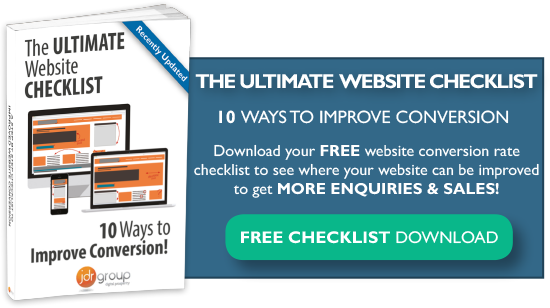How To Ensure You Get A Return On Investment From Your Website

Having an online presence is now a necessity – but necessary isn't sufficient. A good website can costs thousands to set up, not to mention ongoing upkeep fees. If your website just sits there looking nice, how do you know whether it's actually making a contribution to your bottom line, let alone recouping its value?

What You Need To Know
As a business owner, what do you know about what people do while visiting your website? How many people reach it in the first place, and what do they do while they're there? Customers using mobile devices browse differently to those on PCs, so you need to know how many of each you're getting to tailor the website experience to their needs. You'll also want to know whether people are leaving your site without doing anything (so-called ‘bounces’) – this can mean your online offering isn't compelling enough for the people you’re trying to target.
How Can You Find Out?
The FREE Google Analytics service can help SMEs like yours discover key facts about how sites are being used. You can discover which pages your visitors click on, whether and where they convert, how well their demographics match your target audience, and much more. With Google's resources on your side, you'll have a far better insight into what works and what doesn't.
Why Good SEO Is Vital
SEO, or search engine optimisation, means ensuring your site is well optimised for the keywords you want to target – for example, "construction company in Leicester". Imagine someone searching Google for that phrase – you'd want your company high up the list of results, right? That's what good SEO can do, but it takes time and know-how. Working with a business growth specialist like JDR is a cost-effective option, since they'll already have the experience and SEO skills to get stuck in. You won't need to divert your own employees from existing tasks.
Don't Be Too Salesy
This might seem counter-intuitive – after all, you are trying to sell – but think about how many times you've been put off by hard sell. A pushy, high-pressure approach will likely drive away potential customers rather than encouraging them to convert. Many people use the Internet for researching prospective purchases, and they'll be looking for information and education, not sales-driven hype. Build your authority and sales will flow organically from that.
Keep Conversion In Mind
When designing your website, make it as simple as possible for visitors to convert into customers. The idea is to reduce friction to the absolute minimum, since every time someone has to stop to read a complicated set of terms or click in an unexpected place, that's an opportunity for them to leave and go elsewhere – possibly to a competitor's website. A well set up website will naturally generate enquiries and contacts for you and your business.
The Investment Is Worth It
The resources you invest into creating a website for your business that's as good as possible will set you up for an easier, lower-stress future. You'll have a site where a higher proportion of your visitors will be seriously interested in what you're selling, they'll be more likely to stick around and become customers, and you'll also get word of mouth marketing as people tell friends and colleagues how easy they found the experience.
Next Steps!
At JDR, we're always ready to help you create the ideal website and boost your profits. Contact us today to book a marketing audit and see how it could transform your growth prospects.
Image source: Pixabay


